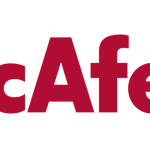- Industri: Software
- Number of terms: 9143
- Number of blossaries: 1
- Company Profile:
This attack targets a computer, server, or network and is either an intentional or accidental byproduct of instruction code that is either launched from a separate network or Internet-connected system, or directly from the host. A DoS attack is designed to disable or shut down the target, and disrupt the system’s ability to respond to legitimate connection requests. A denial-of-service attack overwhelms its target with false connection requests, so the target ignores legitimate requests.
Industry:Internet
A method of fraudulently obtaining personal information, such as passwords, Social Security numbers, and credit card details by sending spoofed emails that look like they are sent from trusted sources, such as banks or legitimate companies. Typically, phishing emails request that recipients click on the link in the email to verify or update contact details or credit card information. Like spam, phishing emails are sent to a large number of email addresses, with the expectation that someone will act on the information in the email and disclose their personal information.
Industry:Internet
Part of the McAfee convention for naming viruses and Trojans. This suffix is attached to the end of virus names to indicate that the virus can transmit itself via email. The double “m” indicates that the virus is capable of generating high volumes of email, typically hundreds of emails per infected machine.
Industry:Internet
A handheld device that combines computing, telephone, fax, Internet, and networking features.
Industry:Internet
A malicious software program, including viruses, spyware, and Trojans. PUPs are not considered malware.
Industry:Internet
A scan will examine files to find viruses and other potentially unwanted code.
Industry:Internet
Used to transfer HTML documents. The standard port used is Port 80 in IP networking terminology, although port 443 is used for secure HTTP. Many companies also use Port 8080
Industry:Internet
The File Allocation Table is the area of a disk that stores the list of files. Also, a formatting system for disk drives. Some malware deliberately overwrites the FAT on a disk to destroy data.
Industry:Internet
A test to verify that anti-spam software is operating correctly.
Industry:Internet
